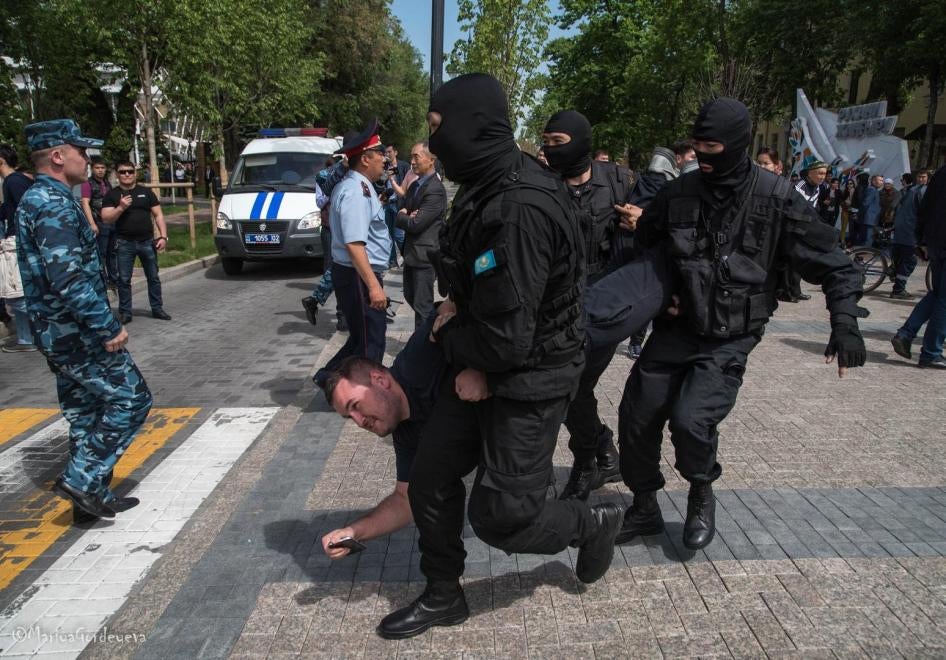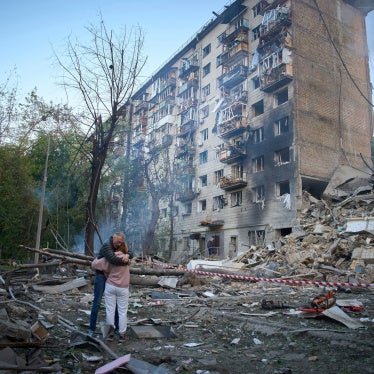Kazakh police yesterday detained dozens of people in cities across the country who were protesting the use of torture and politically motivated imprisonment.
People appear to have rallied in response to a call by opposition movement Democratic Choice of Kazakhstan (DVK), which a Kazakhstan court in March declared “extremist” and banned, a move seen by some simply a means to repress the opposition group.
Videos posted on Facebook show groups of people gathered in squares, a pedestrian walkway, and outside city administration buildings holding signs reading “No Torture” or calling for “Freedom for political prisoners.”
People gathered in Almaty, the country’s largest city, and in Astana, Kazakhstan’s capital. Smaller protests took place in Uralsk, in the northwest, and in Shymkent, in the south, and other cities.
Given Kazakhstan’s population of over 17 million, the total number of people who came out – a few hundred at most – is a tiny percentage.
Rather than let the protesters’ messages be heard, Kazakh authorities resorted to their tried-and-true repressive methods of detaining people. Pictures show that police – including masked riot police – resorted to aggressive methods while detaining peaceful protesters. A Reuters correspondent saw approximately 50 people being detained in Almaty. The Kazakhstan International Bureau for Human Rights and Rule of Law, a local human rights organization, reported that approximately 50 people were detained in Astana as well.
Those detained were taken to police stations. Some were sanctioned, including time in custody, under a restrictive public assembly law.
These tactics are oppressive and rights-violating, but the authorities in Kazakhstan do it anyway. Claims that Kazakhstan will review its public assembly law have rung hollow for so many years, I’ve lost count.
Maina Kiai, the former United Nations special rapporteur on the rights to freedom of peaceful assembly and association, who visited Kazakhstan in January 2015, concluded that the “[g]overnment’s approach to regulating assemblies deprives the right of its meaning.”
That finding is still true today.
Kazakhstan’s partners – in particular the European Union, which just upgraded relations with Kazakhstan, and the United States, which has praised Kazakhstan for “it’s commitment to democracy… and free speech” – should change their tune. These countries should call for an end to violations committed by Kazakh authorities. Otherwise, we will continue to see people hauled in to police stations for standing in public and expressing a critical opinion.









